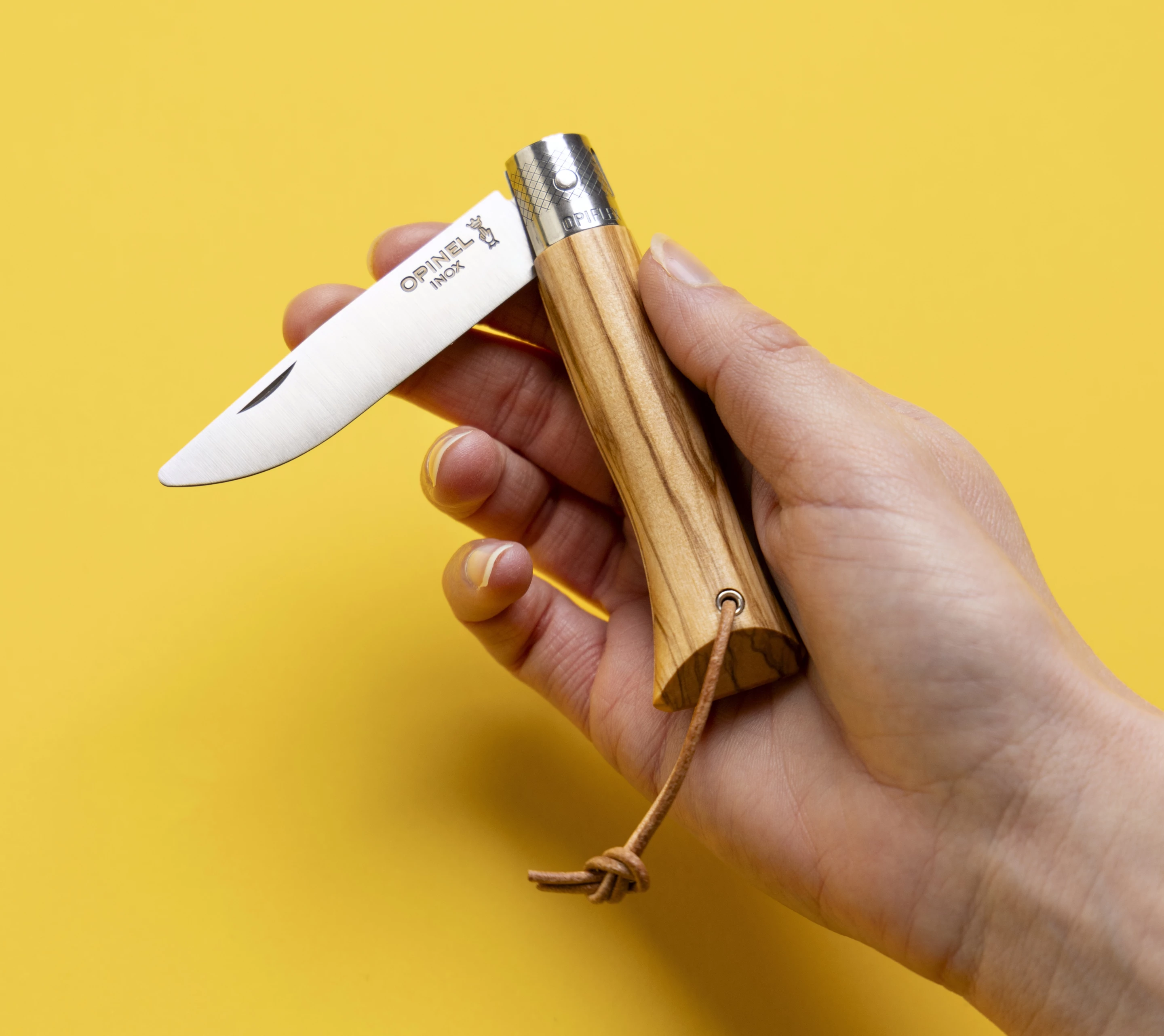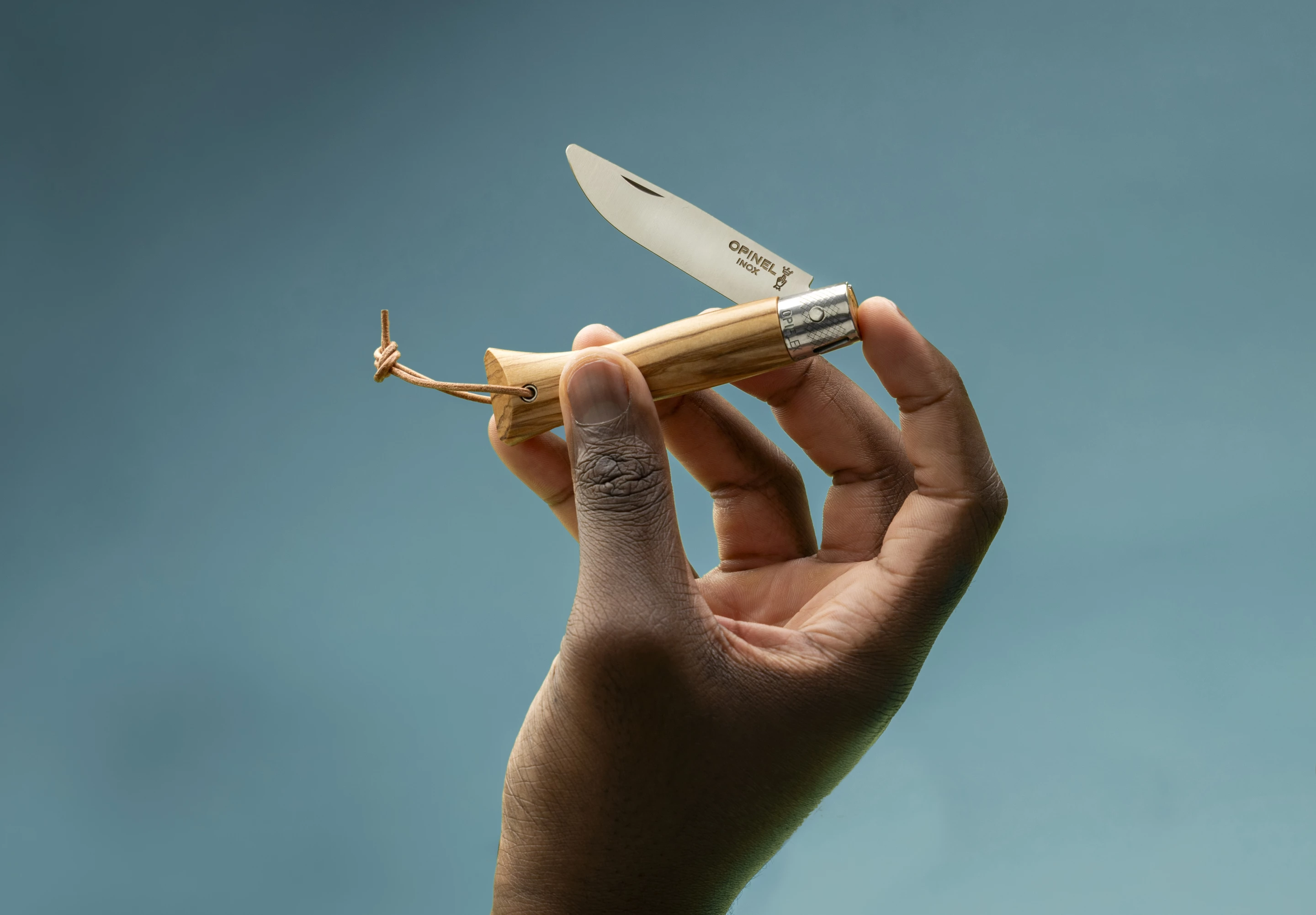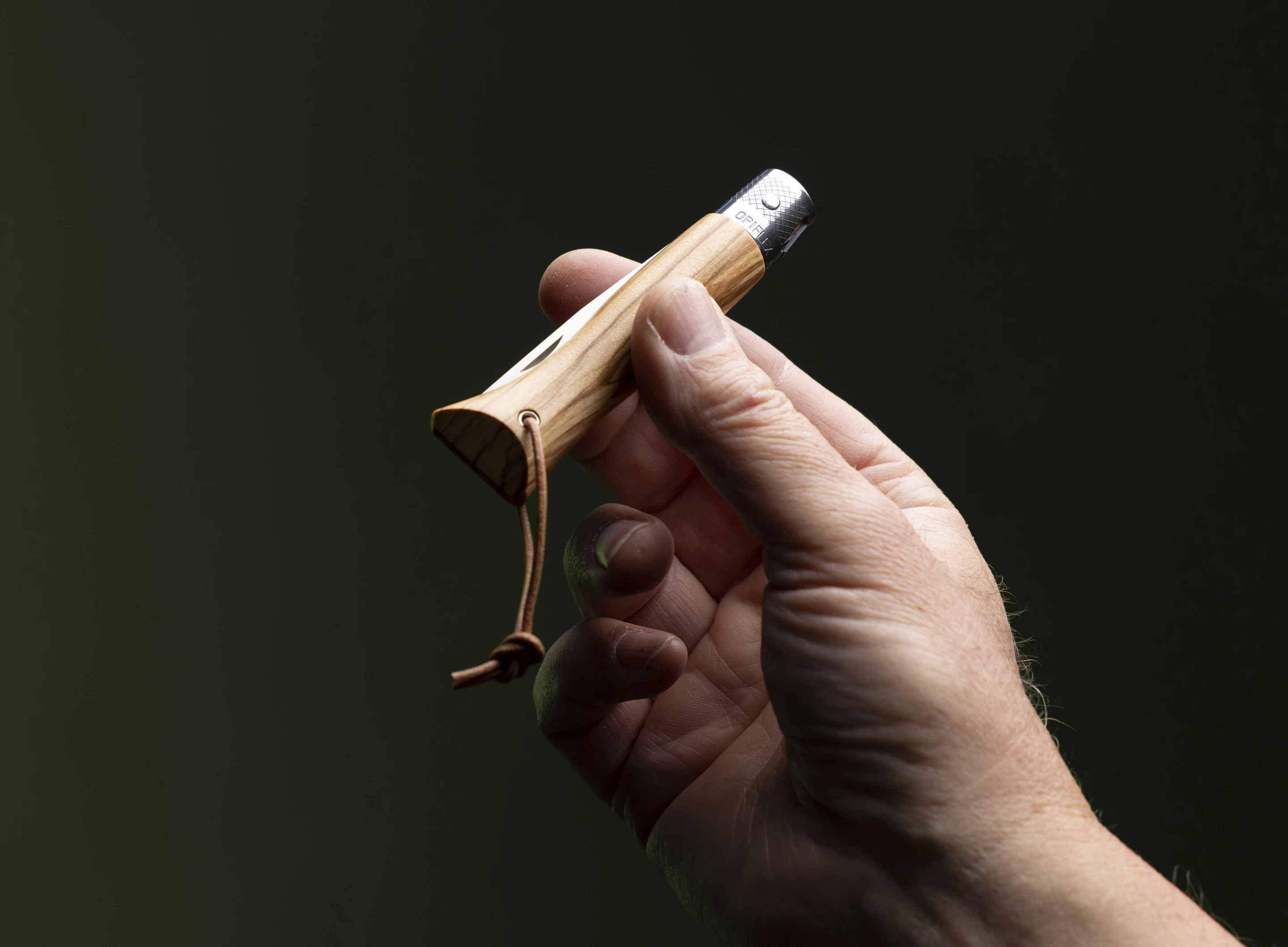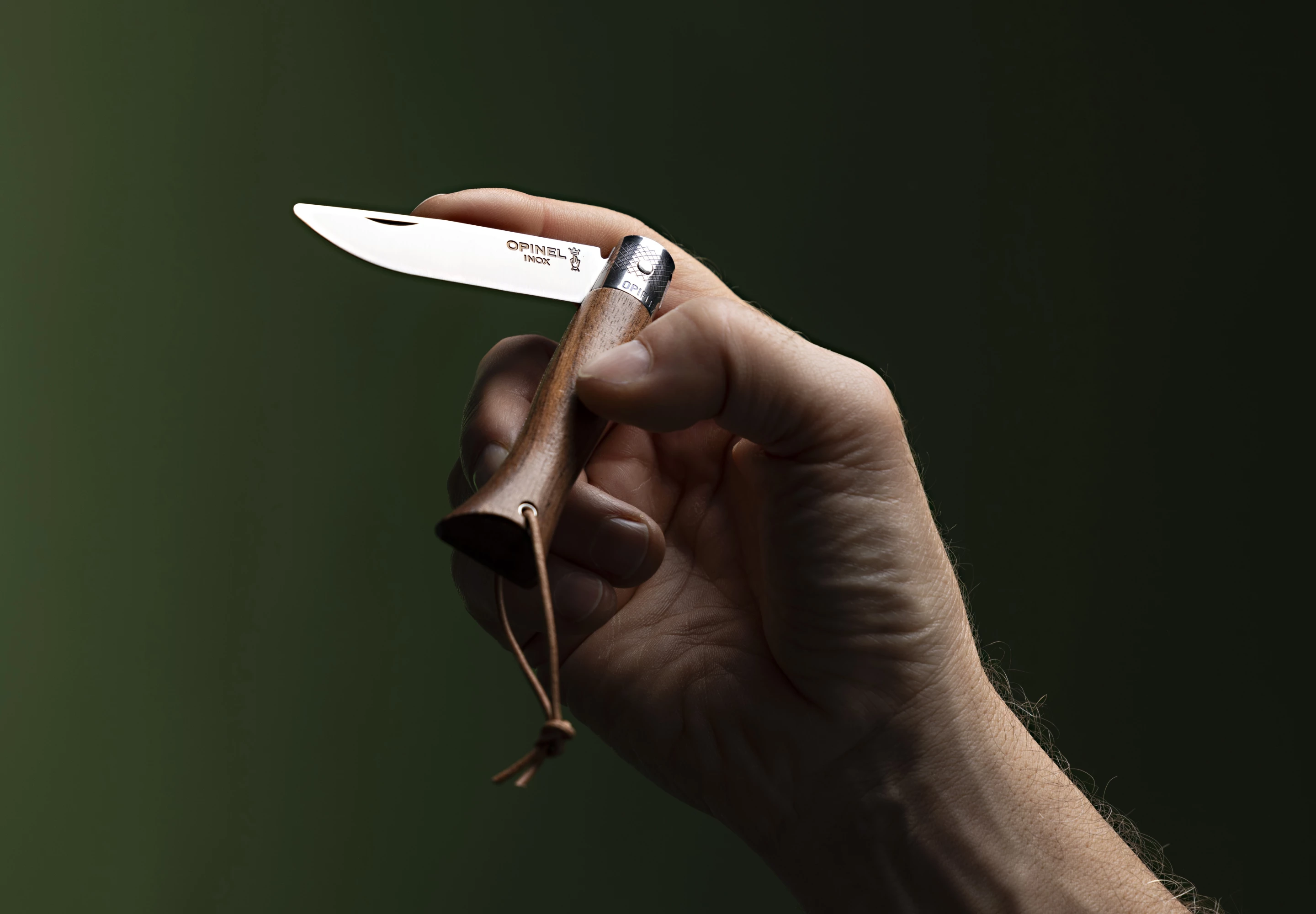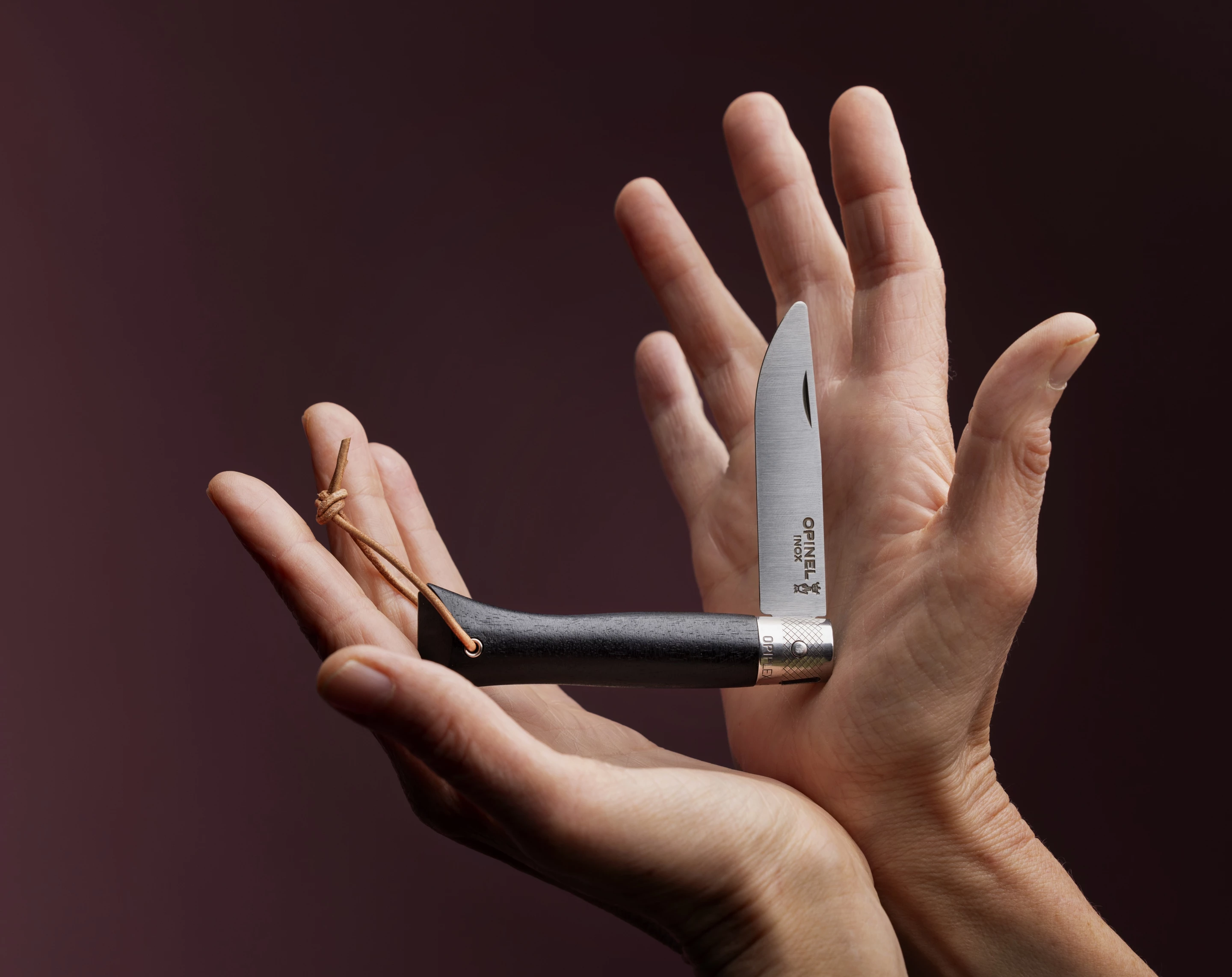With retail prices starting under 20 bucks, and a sleek, simple combination of wood handle, hard steel blade and no-fuss twisting ring locks, Opinel knives are one of the true ageless classics of the folding knife market. This year, though, the Opinel lineup has gotten a new twist ... or lack thereof. The all-new Néo6 knife carries the same sleek, timeless look but trades out the ring lock for a new non-locking slip joint designed to deliver stable blade performance without locking in.
For 70 years, Opinel has been building knives with its Virobloc system, at first designed to merely lock the folding blade open and later to lock it open and closed. A simple rotating ferrule, the Virobloc mechanism features a thin opening that allows the blade to fold open or closed before the user gives it a twist to lock the blade in position. It's a beautifully simple, easy-to-use way of locking the blade open and closed, and Opinel added it to all its knife models in the 2000s.
The Néo6 does away with this convention to appeal to users looking for a non-locking blade, such as those who live in the UK and other localities where locking blades are restricted or banned. Specific laws vary, so you'll want to know yours before committing to a particular product.

Called Opiflex, Opinel's non-locking system is a spin on the slip joint, a longstanding style of mechanism that uses a spring to keep the blade in open and closed positions without ever fully locking it. The spring essentially places pressure on a notched section of the blade's tang to hold it in position.
Rather than adding in a handle spring, as seen in other slip joint designs, Opinel stays on brand by integrating its spring into the ring-like ferrule around where the blade meets the handle. A spring-like tab on the back of the ferrule interfaces with notches on the tang to hold the blade stably in open or closed position. Manual pressure is enough to overcome the pressure from the spring tab to fully close or open the blade.
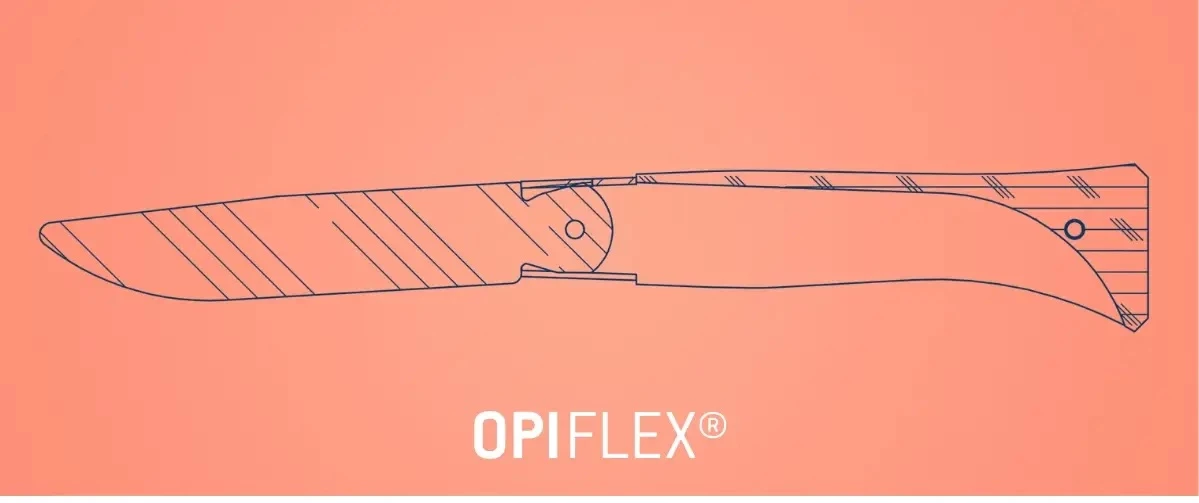
In addition to broadening Opinel's appeal in jurisdictions with strict regulations on locking knives, the Opiflex mechanism is designed to streamline blade opening and closing for fast, intuitive knife use.
Having purchased a Virobloc-equipped Opinel knife in the past, I will note that the simple locking mechanism was one of the key reasons I bought it. I liked the idea of a locking blade to prevent accidental closure, and the Virobloc mechanism proved easier and more intuitive for my 8-year-old son to operate than the liner lock of the knife he originally used for Scouts. It was a great purchase, especially for under $20.
That said, I prefer locking blades in general and live where they're perfectly legal. I can understand why Opinel has designed a solution for those who don't.
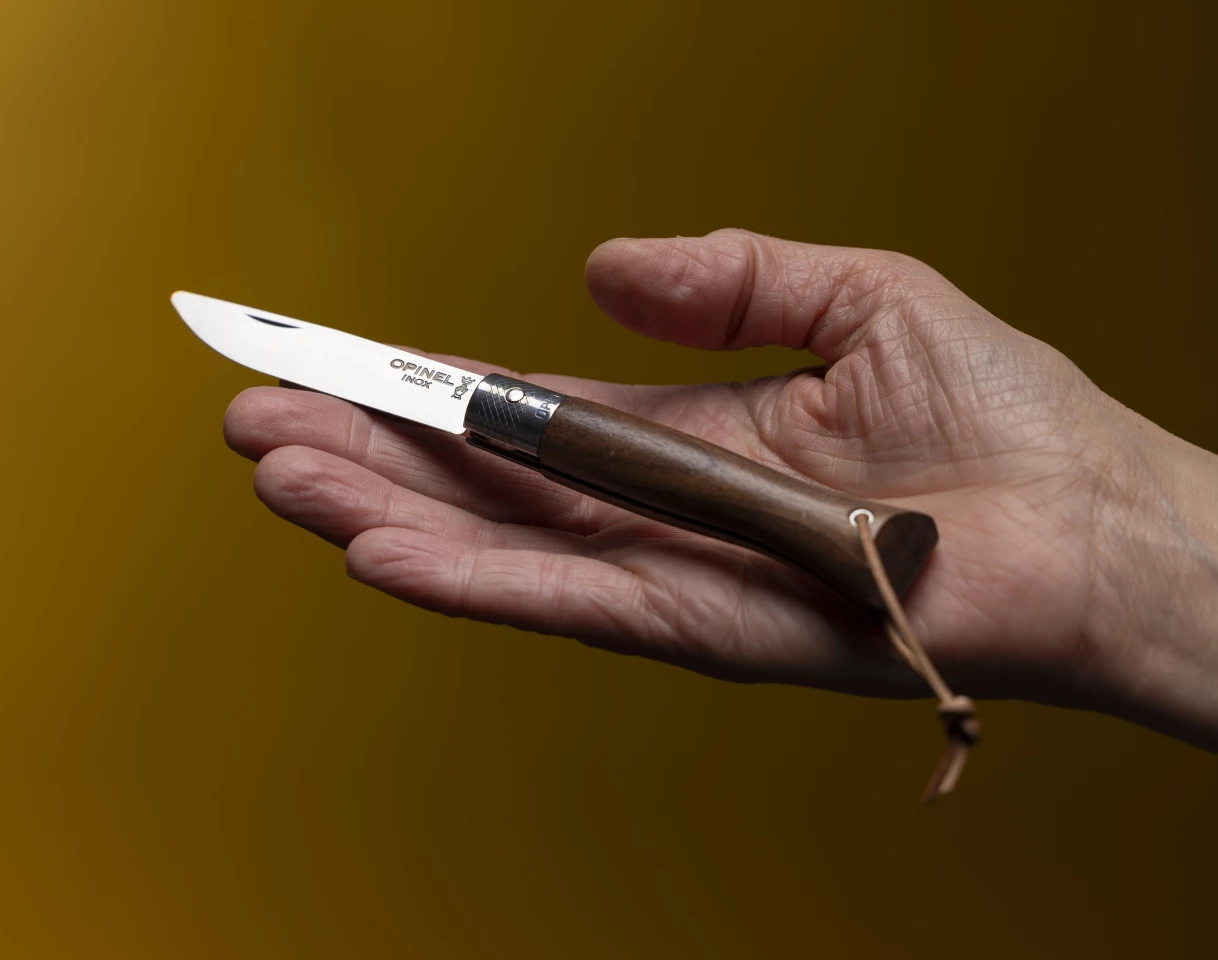
Beyond the patent-pending Opiflex mechanism, the Néo6 is a straightforward Opinel folder with several wood handle options and a 2.8-in (7.1-cm) stainless steel blade. At just under 0.9 oz (26 g) and 4 inches (10 cm) long when closed, the knife is very pocketable and EDC-friendly. The recycled leather lanyard adds to its convenience and simple, timeless style.
You'll notice the rounded tip in photos, which is designed to serve hand-in-hand with the regulation-meeting slip joint to make the Néo6 compliant with local laws and "reassuring in an urban environment." Owners can always sharpen it as desired.
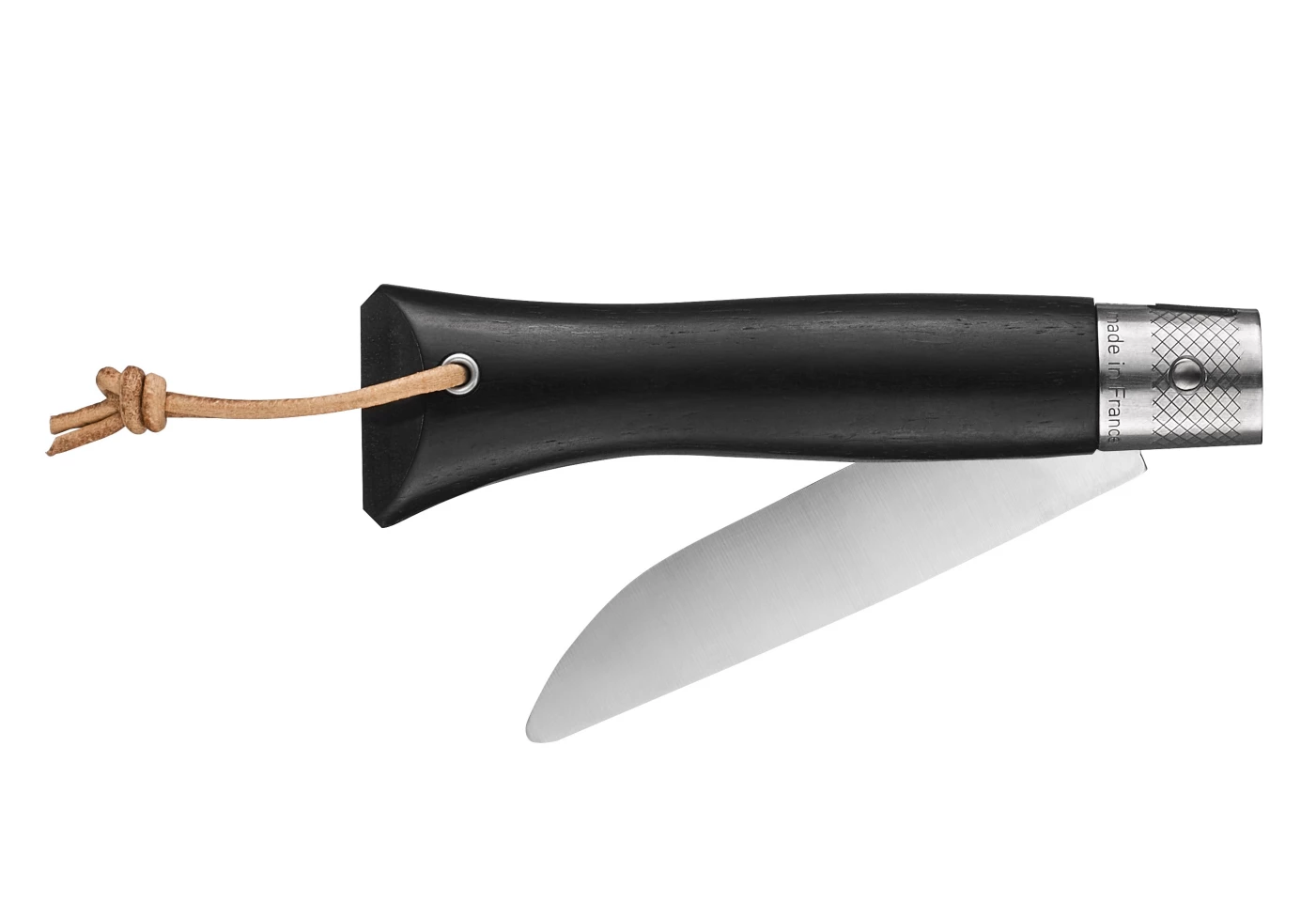
Opinel announced the Néo6 in late July and offers it for a price of US$30 with a French walnut handle, $35 with an Italian olive handle, or $70 with an African ebony handle. The knife is made at the company's workshop in Chambéry, France.
Source: Opinel
New Atlas receives commission when you purchase through some of our links. Thank you!

